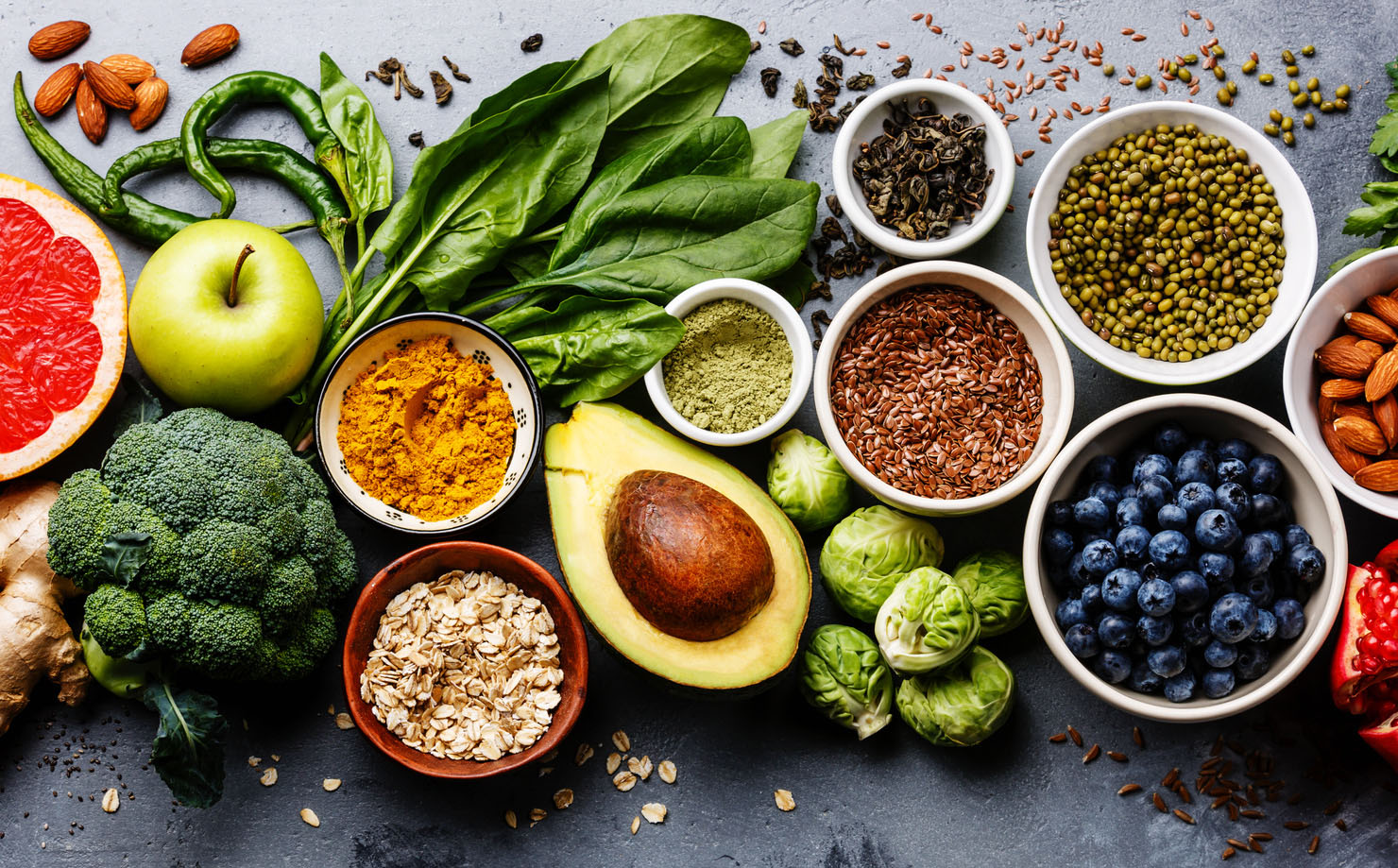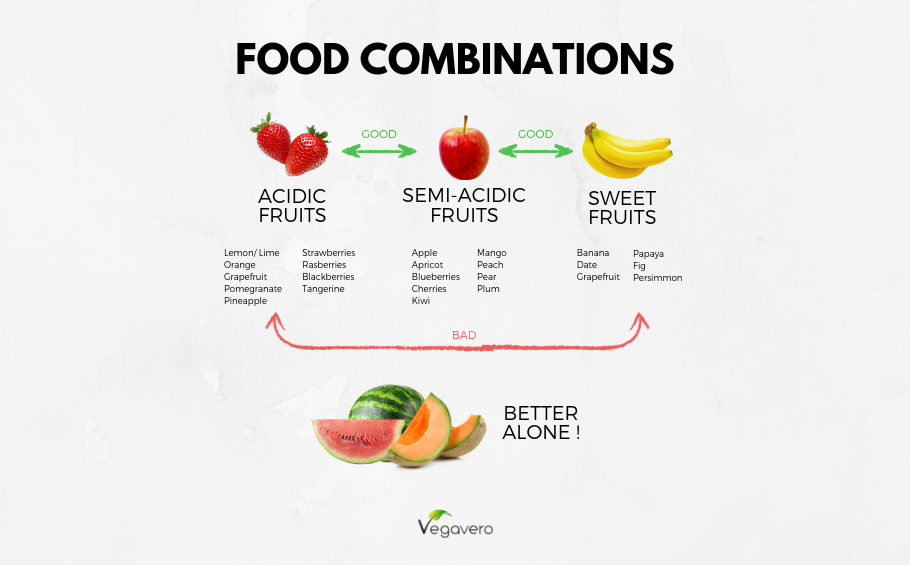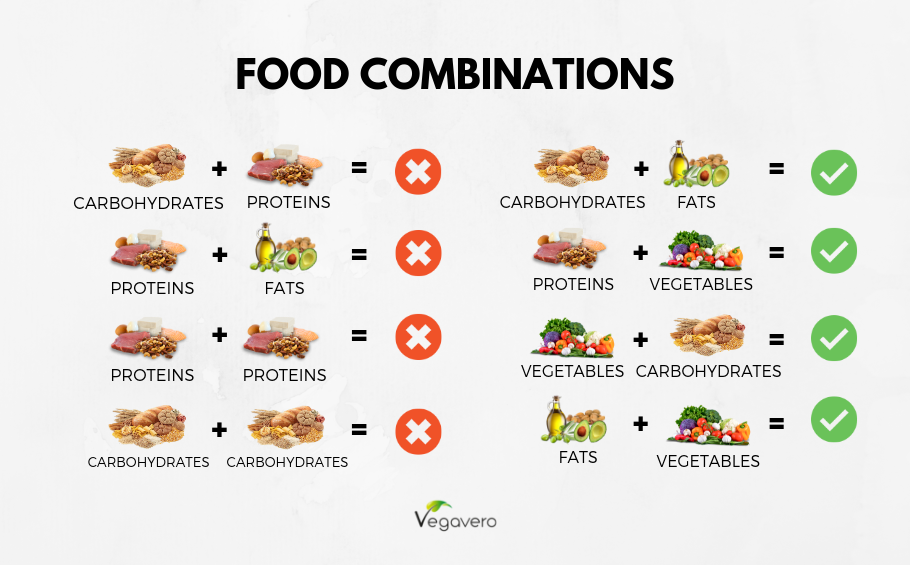
Living at an accelerated pace, consuming processed foods, the lack of time and of nutriotional information can lead us to give little care to our nutrition, making us forget the basics and the easiness of preparing our own meals. Eating a lot of different foods during the same meal can induce digestive problems like stomach acidity, bloating, a feeling of heaviness or sleeping trouble. Why is that?
Let’s start with the basics. What is digestion?
Digestion is a series of events that allow the entrance of foods in our system, their separation in elements that will be digested easily and the reject of what cannot be used bu the body. There are four phases of digestion:
- The ingestion of food through the mouth.
- The mechanical and chemical destruction thanks to digestive enzymes.
- The absorption of nutrients.
- The elimination of non-digested substances.
This process requires a lot of energy, but the time and energy consumed depend a lot on the type of foods we consume and on the way we combine them.
During digestion, different organs free numerous enzymes that work on different places with temperature changes. If we eat foods that require different enzymes at the same time during a meal, we are inevitably making our digestion time longer.
One of the first people to talk about this topic was Dr. Herbet M. Shelton in his book “The combination of foods”. According to his theory, the different food groups need different enzymes and different time periods for digestion.
For this reason, the composition of meals in terms of macronutrients is also very important: for instance, carbohydrates and proteins require opposite processes of digestion. As a matter of fact, proteins need an acidic environment to be digested, while carbohydrates need a basic environment. This means that combined foods that necessitate a different environment to be digested make digestion slower.
That is why combinations of foods that facilitate digestion exist. However, remember that even though it is useful to learn about the ideal combinations of foods to have a better digestion, it should not become a diet, and most importantly any change related to this topic should be checked by a professional.
Here are a few tips to improve your digestion:
Chew slowly
This seems obvious, but chewing your food slowly is truly important. As a matter of fact, digestion starts is your mouth.
Eat your fruits between meals and be careful with the way you combine them

Fruits must be eaten between meals to allow foods to go through an empty stomach. In that sense, they are digested faster, which prevents you from bloating and your body from creating fermentation. It is however crucial to be careful with the different fruit combos, that can be divided in acidic fruits, semi-acidic fruits, and sweet fruits. Within the same group, every combination is safe. In between the groups, some combinations are possible: between the acidic and semi-acidic fruits and between the sweet and the semi-acidic fruits. It is preferable to avoid the association of acidic fruits with any sweet food. Watermelon and cantaloupe would not be an ideal combo: they must always be eaten separately because they take little time to be digested.
Do not mix the different forms of carbohydrates and proteins

Proteins are very hard to digest and need loads of time to do so, and this phenomenon amplifies if they come from animals. In addition, the combination of different foods that contain protein can create issues: our stomach produces different gastric fluids at different times depending on the proteins that are to be digested. Avoid mixing different types of carbohydrates as well, especially if they are simple (such as sugar) or complex (such as pasta).
Do not associate proteins with carbohydrates
The necessitated digestion time for proteins is completely different than the one that carbohydrates require, the acidity level they need to be digested also differs. As a consequence, foods that contain them are not compatible. Some substances necessary for the digestion of carbohydrates (such as ptyalin for instance) interfere with other substances that are useful for the digestion of proteins.
Acidic foods and carbohydrates together? Not a good idea.
Any type of drink, and most importantly alcohol and acidic drinks, tend to excessively raise gastric acid levels, which lower the pH, which results in a more difficult digestion of carbohydrates. Nonetheless, acidic drinks are recommended to help the digestion of a protein-rich meal because, as we have previously discussed, proteins are better digested in acidic environments.
Be careful with fats
Cooked or fried foods are likely to make the digestion process longer for proteins in the intestines. It is better not to consume fatty foods in high quantity in general, especially the ones with hydrogenated fats (also called trans-fats) that can increase the risk of developing heart diseases.


